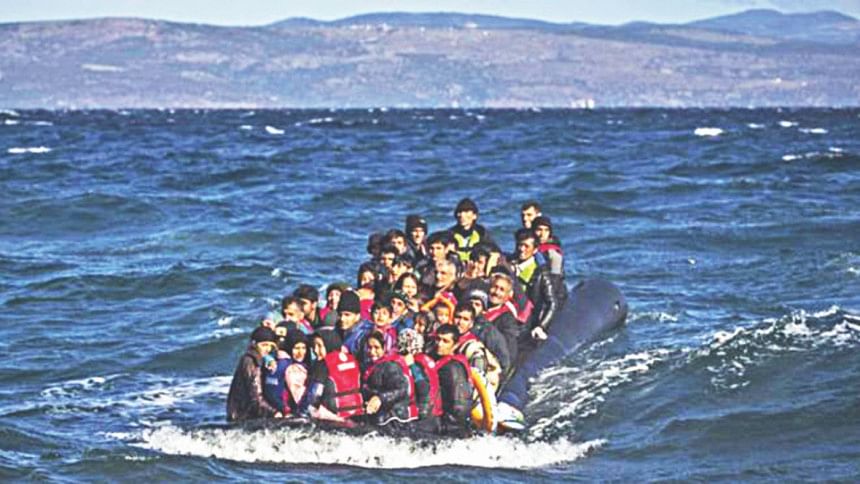Migration to dominate southern EU meet

The heads of seven southern European states were set to gather in Rome yesterday to tackle one of the most stubborn thorns in the EU's side: flows of migrants from war-torn and impoverished countries.
The leaders of Cyprus, France, Greece, Italy, Malta, Portugal and Spain were to meet in the Italian capital for a short meeting, followed by a joint press conference and a working dinner.
It will be the fourth meeting of the "Southern Seven" since Greek Prime Minister Alexis Tsipras launched the initiative in September 2016. The group met twice last year, in Lisbon and Madrid.
Issues on the agenda are expected to include the future of the eurozone and efforts to propel growth, employment and investment, as well as preparation for the 2019 European Parliament elections.
But from overcrowded reception centres on Greek islands to packed boats heading for Spain, the hottest topic is bound to be migrants.
For Italy, 2017 was a turning point: the country went from large-scale arrivals in the first six months to a sharp drop-off, thanks to controversial agreements in Libya.
Some 119,000 people landed in Italy last year, down 35 percent on 2016.
For its part, Spain saw a notable increase in Algerians and Moroccans sailing in, from 6,000 attempting the crossing in 2016 to nearly 23,000 picked up last year.
In Greece, an accord struck between the EU and Turkey limited the number of arrivals to 28,800 -- six times fewer than in 2016 -- but it did not solve the problem of caring for those who had already made the journey.
- UNDER PRESSURE -
The toll of dead or missing in the Mediterranean dropped from nearly 5,000 during crossings in 2016 to 3,116 in 2017, mostly off the coast of Libya.
But the start of 2018 has seen some grim statistics.
Between 90 and 100 migrants were missing after their makeshift boat sank off Libya, the country's navy said late Tuesday. Ten migrants also died last weekend and dozens more are missing after their boat sank.
But apart from rescues at sea, asylum applications -- and the inevitable delays and lengthy appeals -- have placed great strain on some countries.

 For all latest news, follow The Daily Star's Google News channel.
For all latest news, follow The Daily Star's Google News channel. 



Comments